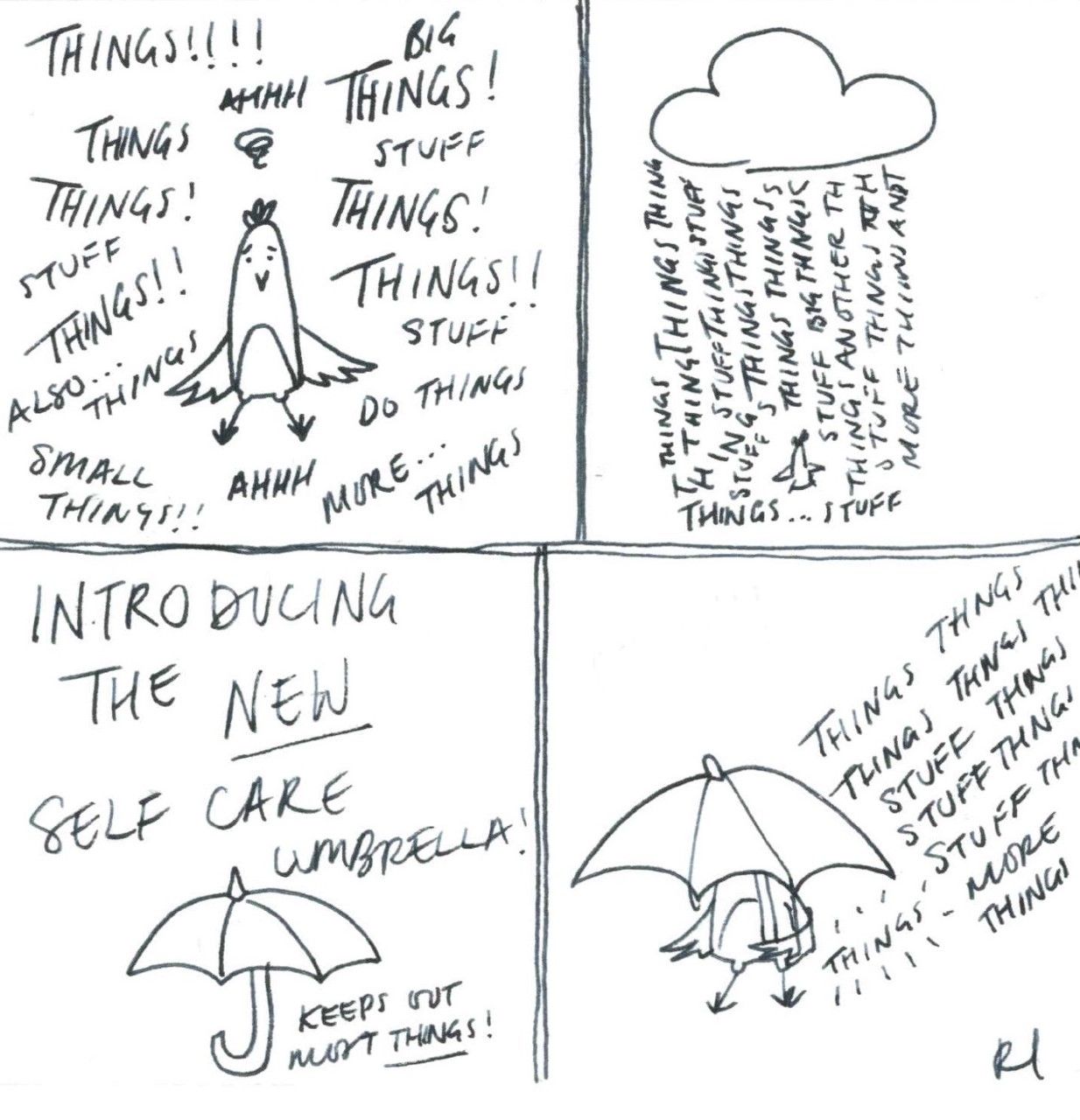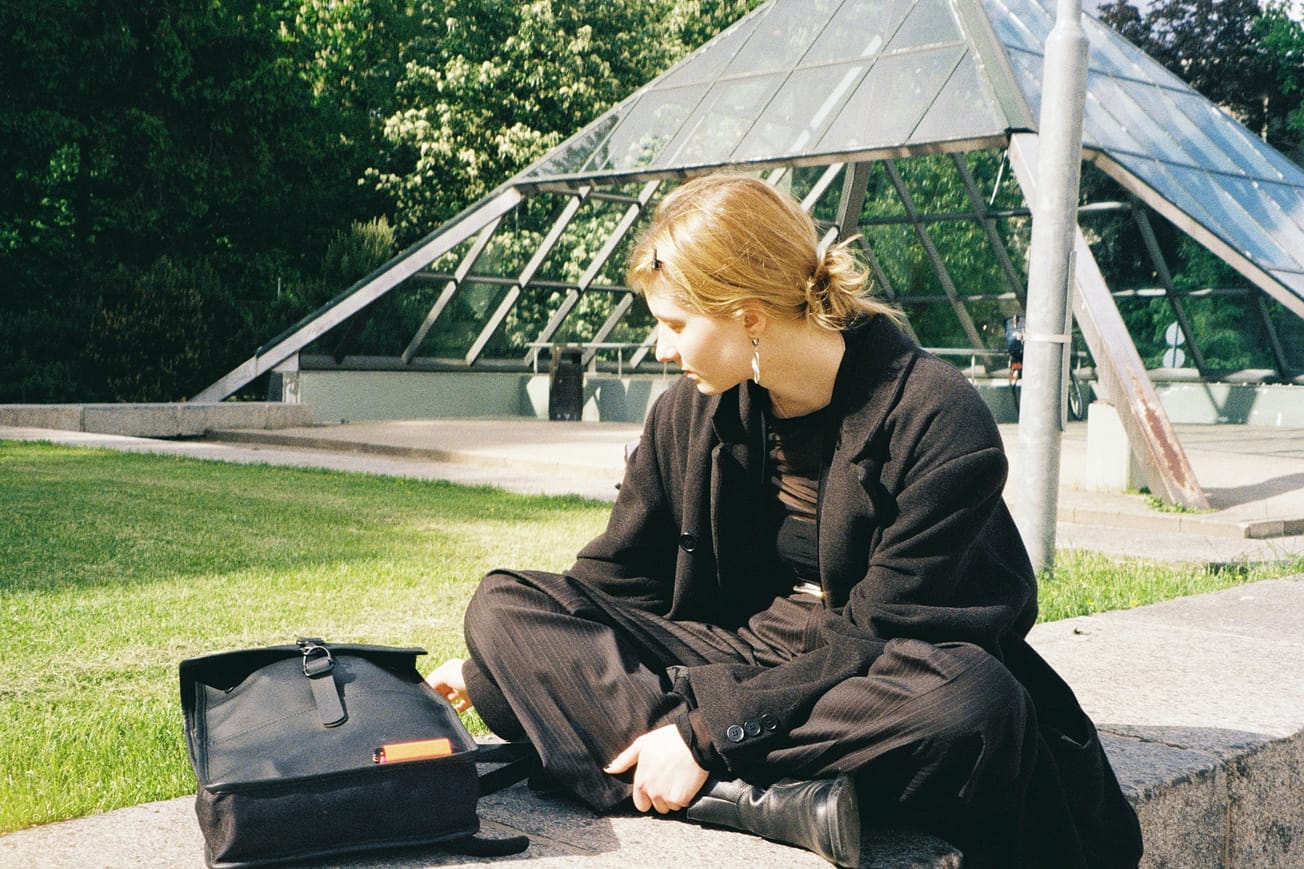By Robin Ireland, First Year, English
The Croft Magazine // Pressure can come from anywhere, but it is perhaps at its worst when we put it on ourselves. Too much focus on 'getting stuff done' can lead to feelings of guilt and burnout – here, we consider how to be more forgiving with ourselves.
It’s June, though I’m not quite sure how we got here. Maybe you’ve spent lockdown so far knitting scarves or perfecting your sourdough or writing the draft of your debut novel.
Perhaps you’re not doing any of that. Like me, you may have found yourself scrolling endlessly through Twitter, living vicariously through the heated arguments of complete strangers. Every time I open up any kind of social media, this immense guilt hits me. Should I be doing more?
The guilt is compounded by messages like this:
Just a reminder that when Shakespeare was quarantined because of the plague, he wrote King Lear.
— rosanne cash (@rosannecash) March 14, 2020
Even though I have only just finished my first year at Bristol, it’s easy to forget that I don’t need to have my whole life figured out just yet. It feels like this is the perfect time to be doing everything I’ve ever wanted – apart from seeing my friends. I should be more proactive in sharing resources to spread awareness of important issues. I could be starting my own zine and waking up at 7am to do yoga.
Not many people are posting boomerangs of themselves feeling like a lump in bed
Even things that are meant to be relaxing have become a box to tick off. Usually, I love being organised. When I came back from Bristol, it was as if I’d forgotten to pack that part of my brain into my suitcase. I found myself getting stressed and overwhelmed by the world around me. When friends would ask how my day was, I’d tell them that I had not been as productive as I’d hoped to be.
What exactly does this mean?
Our culture of productivity has become very toxic. We are constantly driven by a need to produce things of value and to be able to perform to the same level every day. When we can’t do this, it feels like a failure – and this makes us feel like failures too. The guilt is made worse by the posts we see daily of morning workouts via video call: not many people are posting boomerangs of themselves feeling like a lump in bed.

It is important to remember the context in which we find ourselves. We are in a situation in which we have most likely never found ourselves before and will hopefully never have to again. Shakespeare did not have thousands of voices and videos of injustice waiting for him in his pocket. We need to be kind to ourselves, now more than ever.
| The digital degree of your dreams: an approach to online learning
This is not to say that things don’t need to get done, just that our definitions of productivity need to change. You might need to submit that essay, do your washing and post that letter. But we should also be taking time to do things that are productive for our mental health.
A few moments to yourself cannot take away every single pressure, but it can help to relieve some of them
We need to divorce ourselves from the idea that we have to be doing ‘something’ for it to matter. Take a walk to clear your head, put aside some time to have a bath and listen to a podcast. A few moments to yourself cannot take away every single pressure, but it can help to relieve some of them.
Productivity is not just making things you can see or hold; it’s doing things to take care of ourselves both in the short and long term.
We are worth so much more than the value of the things we create.
Featured image: Epigram / Robin Ireland
Find The Croft Magazine inside every copy of Epigram newspaper.









